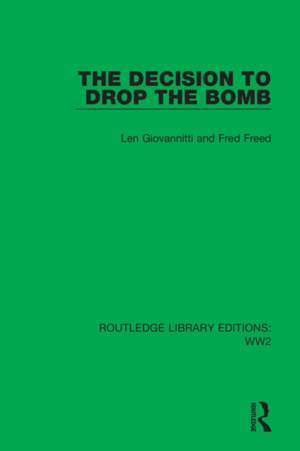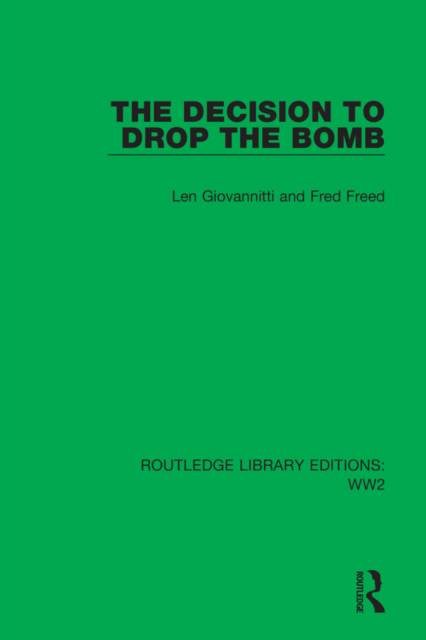
- Retrait gratuit dans votre magasin Club
- 7.000.000 titres dans notre catalogue
- Payer en toute sécurité
- Toujours un magasin près de chez vous
- Retrait gratuit dans votre magasin Club
- 7.000.000 titres dans notre catalogue
- Payer en toute sécurité
- Toujours un magasin près de chez vous
Description
This book, first published in 1967, examines the circumstances and events that led to the dropping of two atomic bombs on Japan, devastating Hiroshima and Nagasaki. The death of President Roosevelt three weeks before the end of the European war led to an incoming President, Truman, who had heard nothing of the project before taking office. He and his advisers had no precedents to guide them as they considered what to do, and withing their closely drawn circle there were genuine differences of opinion about the use of atomic weapons. This book traces the course of the discussions between the politicians and their technical advisers, the part played by personal relationships, and the attempt by some of the scientists to stop the bomb being used without warning. In addition, it supplies a thorough analysis of developments abroad, and in particular the situation in Japan. It shows that the debate in Washington and the atomic plants was careful and wide-ranging, and that issues are no less complex for being supremely important. The result is to provide both a study of decision-making and a valuable contribution to our understanding of the closing months of the Second World War.
Spécifications
Parties prenantes
- Auteur(s) :
- Editeur:
Contenu
- Nombre de pages :
- 366
- Langue:
- Anglais
- Collection :
- Tome:
- n° 7
Caractéristiques
- EAN:
- 9781032047959
- Date de parution :
- 22-11-21
- Format:
- Livre relié
- Format numérique:
- Genaaid
- Dimensions :
- 156 mm x 234 mm
- Poids :
- 689 g







